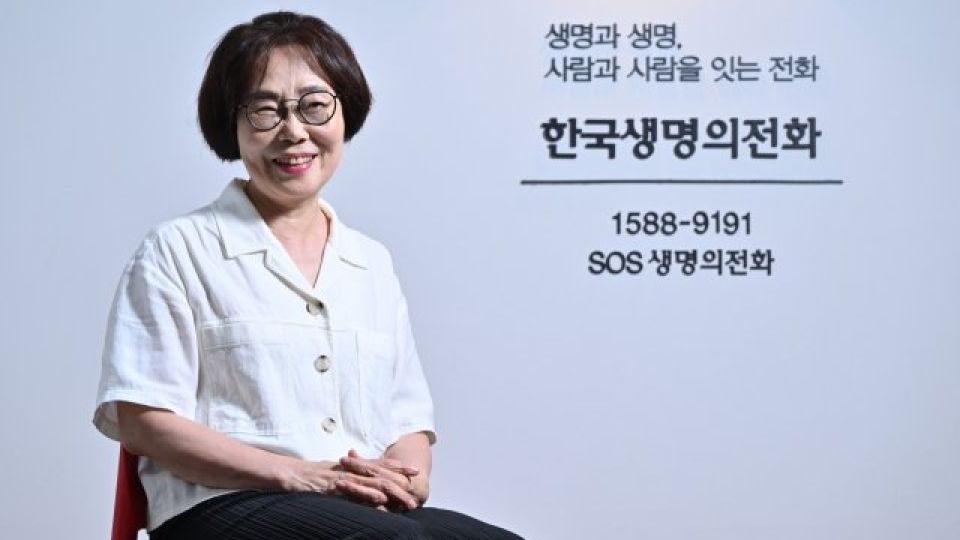September 27, 2024
SEOUL – Park In-soon can never forget August 2009. That was the month her son ended his life at 23 years old.
Her son had been struggling with depression, but he had told her that he was feeling better. But two months after he stopped taking his medication, he took his own life.
For Park, the news of his death felt like receiving a life sentence. She could not sleep. All she wanted was to follow him in death.
Several weeks later, she got into a car accident, while driving home from a sunrise service at church. Just as she was about to hit a tree on the side of the road, she managed to steer herself to safety. Her car was wrecked, but she was spared from serious injuries.
“If I had died in the accident, people would have thought that I did that on purpose. Because my only hope (at that time) was to die,” she said in an interview.
“But, at the moment of impact, my instinct led me to protect myself. I realized that deep down, I wanted to live.”
Although she stopped thinking about death, the pain didn’t go away.
It was only the summer next year that she started on a journey to recovery.
She joined a recovery program for families who had lost loved ones to suicide, organized by LifeLine Korea, the only program of its kind in South Korea. LifeLine is a global network of organizations providing 24-hour crisis support and suicide prevention services. Its work in Korea is financially supported by the Life Insurance Philanthropy Foundation.
There, she met others who had experienced similar pain, found solace among them and began to regain power to live on.
“Even though we all had different backgrounds, we shared one common experience: the loss of a beloved family member. We clung together to overcome the grief,” she said.
In the beginning, she found comfort in the support group meetings. Over time, she gradually transformed into someone who offers comfort to others.
Park began receiving specialized training to become a LifeLine counselor, and, in 2011, started volunteering for the 1588-9191 hotline. She furthered her education to qualify for a position at Han River crisis hotlines. Since 2015, she has been providing counseling to distressed individuals who call from emergency telephones installed on the bridges, which was among the most suicide-prone locations.
The Han River hotline service is a job with modest pay and a grueling work schedule.
Park stays up every Monday and Thursday night, on standby for any incoming calls from 6 p.m. to 9 a.m. the following day. Every third week, she also works on Friday night.
When the phone rings, Park feels a surge of anxiety inside, even fear. For a brief moment before answering it, she prays to God, “Even my life is in a pitiful state, how can I possibly counsel anyone? Please give me wisdom.”
One day, a call came from one of the Han River bridges. On the line was an 18-year-old school dropout, a girl. She said she took subway from Incheon, with no money to get back home. It was late November, and the cold was biting.
Over the phone, the desperate girl said her life was a failure and she saw no future ahead. She felt that no one, not even her family, cared about her and showed her any empathy.
At the start of the phone conversation, Park had alerted emergency responders. While listening carefully and trying to comfort the girl, she noticed the girl’s fondness for animals. Park cautiously suggested that there was a future for someone like her who genuinely cares about animals, such as animal-related jobs. Park said that her advice seemed to help.
Park shared another call, which came via the 1588-9191 hotline. The caller, a man in his 30s, was on the rooftop of his apartment building, contemplating a jump.
He said his life was miserable and filled with pain. His parents, with whom he lived, were asleep at home.
Park’s only thought was to persuade him to move to a safe place. The weather was very cold, but the man seemed oblivious to it, overwhelmed by despair. She suggested him to move to a warmer place to continue their conversation.
“For someone in crisis, it is important to change their environment to prevent them from acting impulsively,” she said. “If they step away from the impulsive situation, they can give themselves time to reconsider thoughts of suicide.”
Hotline counselors collaborate closely with the police and fire department rescue teams. Whether or not a caller has attempted suicide is not routinely shared, but counselors can find out if they choose to.
Years of counseling made her realize that those who think about ending their lives are the ones who have lived their lives to the fullest. While they spend all of their energy, they neglect themselves, leading to burnt out and depression. They still hold themselves to very strict standard and if they fail to meet, they feel immense shame, she said.
“I want them not to reproach themselves and to remember that they worked hard and did their best.”
Through her involvement in the community with other bereaved families and her counseling work on the crisis hotline, Park’s values have significantly changed.
“I used to think that saving money, moving to a bigger home and achieving success were what made life valuable,” she said. “But now, I believe that saving lives, comforting grieving people and helping them overcome their sorrow are far more valuable.”
When asked about what she would have said to her own son, if he had called the hotline, Park paused for a while and finally said, “(I would tell him that) I would be really happy if we could both stay strong and live together.”


